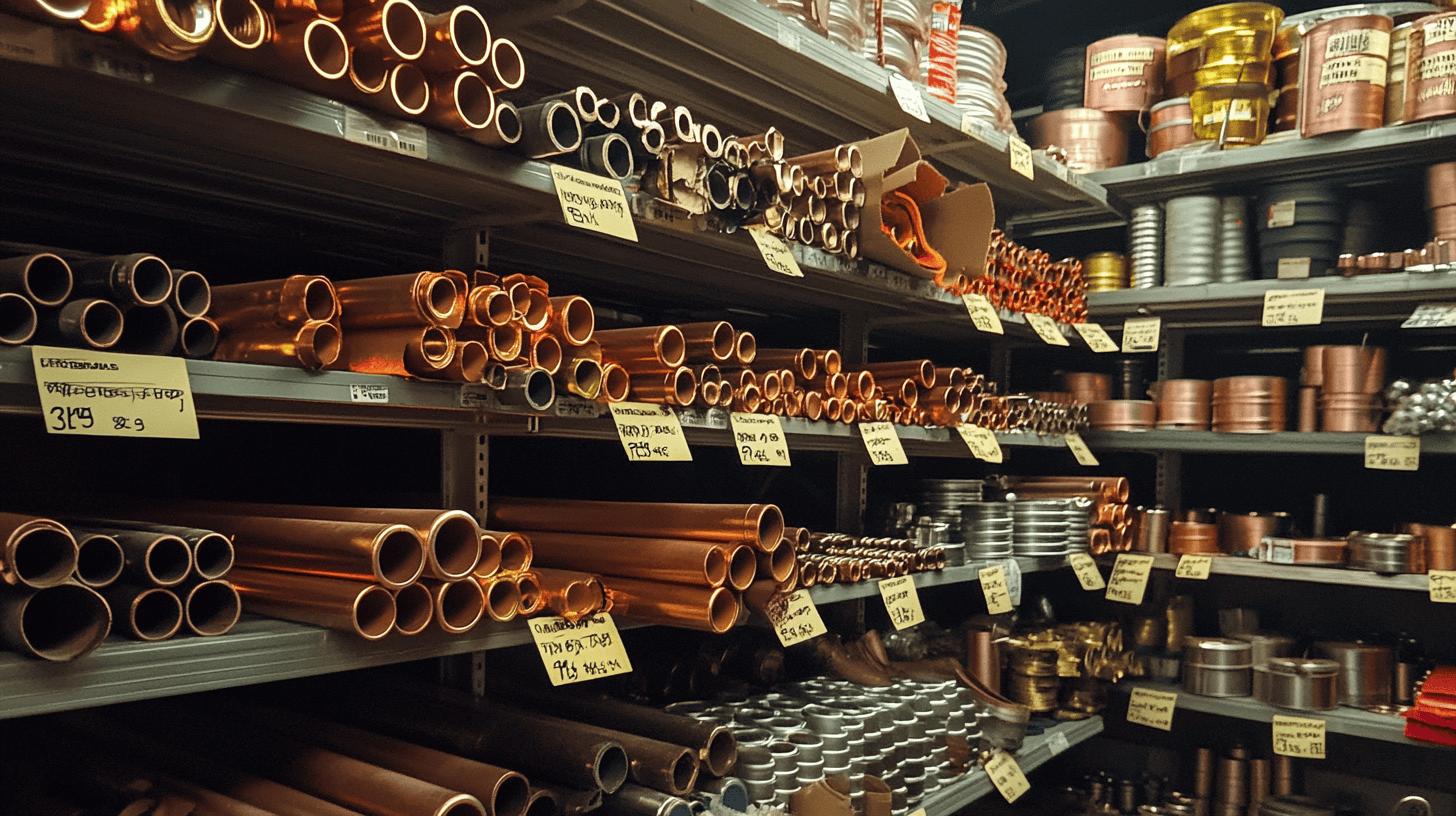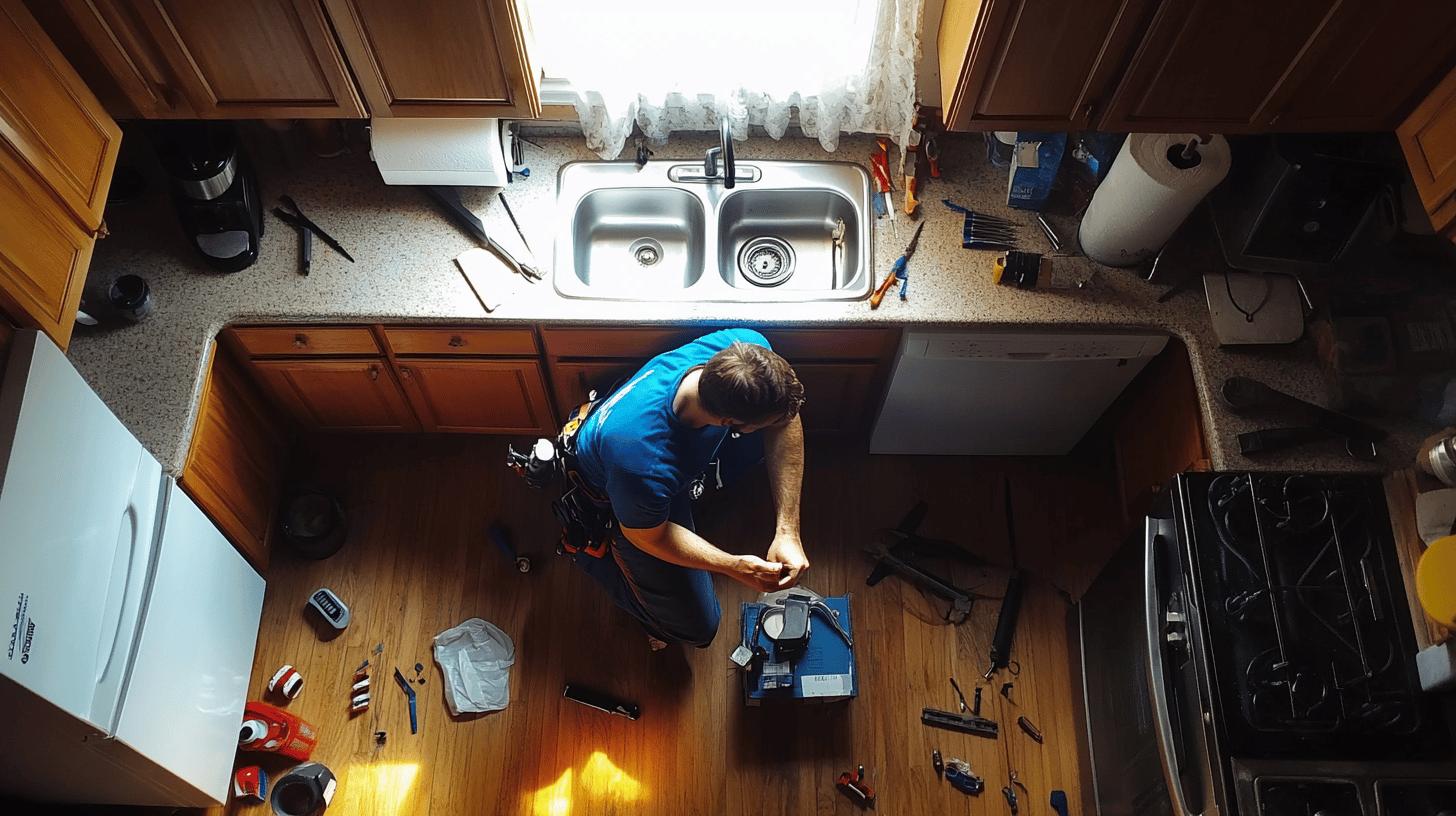TL;DR:
-
Pipe Material Costs:
- Copper: Most expensive, significantly pricier than PEX/CPVC.
- PEX: $0.50 to $2 per foot.
- CPVC: About $1 per foot.
-
Key Cost Influencers:
- Labor Costs: $50 to $120 per hour based on location.
- Regional Variations: Urban areas often see higher rates (up to $60 more).
- Complexity: More intricate plumbing layouts increase costs.
- Project Scale: Larger projects incur higher total material and labor costs.
-
Professional Installation:
-
Advantages: Expertise, time efficiency, quality assurance, and warranty protection.
-
DIY can save costs, but risks improper installation leading to future expenses.
Curious about how much it costs to replace your home’s pipes? You might be surprised by the investment required. Factors like material choice and labor fees play a big role. Whether you’re considering copper, PEX, or CPVC, it’s important to understand these variables. This guide breaks down what affects plumbing replacement costs, helping you get ready for the financial aspects of upgrading your home’s systems. Knowing these details will prepare you for a successful and budget-friendly pipe replacement project. Let’s take a closer look at the cost factors to help you make informed choices for your home.
Factors Influencing the Cost of Pipe Replacement
When you’re replacing pipes in your home, the costs can vary based on several key factors. First, the type of pipe you choose—like copper, PEX, or CPVC—can significantly impact your expenses. Copper typically costs more than PEX or CPVC, but its longer lifespan might make it worth the extra investment. Also, the length of the pipe runs affects material costs; longer runs will be pricier. Lastly, the complexity of the installation plays a role—simpler layouts are usually cheaper than complicated ones with lots of twists and turns.
Key Factors
- Labor Costs: Depend widely on the plumber’s skill and regional rates.
- Regional Pricing Differences: Costs fluctuate based on location.
- Plumbing Layout Complexity: More intricate systems take more time and skill, increasing costs.
- Type of Pipe Material: Different materials have various price points and installation complexities.
- Project Scale: Larger projects need more piping, thus incurring higher costs.
Knowing these factors is key to budgeting for your pipe replacement. For example, labor costs can change based on your location and the plumber’s experience. An experienced plumber might charge more, but they often get the job done faster and better. Keep in mind that prices usually go up in urban areas because of higher demand. By considering these elements, you can make smarter decisions and better prepare for the costs involved in your plumbing project.
Cost Breakdown for Different Types of Pipes

The cost of replacing pipes mainly hinges on the material you choose. Copper, PEX, and CPVC are popular options, and each has different price points. Copper is tough but pricey, while PEX and CPVC are more budget-friendly and easier to install. When choosing, weigh the initial costs against long-term benefits based on your plumbing needs.
Copper pipes are the most expensive, costing much more than PEX or CPVC. Because of this, replacing copper pipes can be pricier due to both material and labor. PEX is a cost-effective choice, priced between $0.50 and $2 per foot, while CPVC is the cheapest option, averaging around $1 per foot. Both provide reliable performance without breaking the bank.
| Pipe Material | Cost per Foot |
|—————|—————|
| Copper | Several times more than PEX or CPVC |
| PEX | $0.50 to $2 |
| CPVC | About $1 |
When picking the right material for your pipes, consider your budget, how long you want them to last, and how complex the installation will be. Copper is great for durability, but it’s expensive. If you’re on a tighter budget, PEX offers a good balance of cost and performance. CPVC is a solid choice for those looking to save money while still getting reliable plumbing. Make smart decisions by considering your financial limits and your home’s plumbing needs.
Regional Pricing Variations in Pipe Replacement
Where you live plays a big role in the labor costs for replacing pipes, which can affect your overall expenses. In cities, high demand for labor can push rates above the national average by about $60 per hour. On the other hand, rural areas might have lower labor costs, but you could face challenges finding skilled workers, which can impact the quality and speed of the work. Keeping these differences in mind is crucial when figuring out the total cost of replacing your pipes.
Location Insights
- California: Higher labor rates, especially in cities like Los Angeles and San Francisco.
- Texas: Varied pricing; urban centers like Dallas and Houston are pricier than rural areas.
- New York: New York City has some of the nation’s highest labor costs.
Getting estimates from local plumbers is essential for accurately budgeting your pipe replacement project. By consulting with professionals in your area, you can better understand regional costs, which helps create a more precise financial plan. This approach helps you avoid surprise expenses and ensures you’re getting competitive pricing that fits your specific location.
Benefits of Professional Pipe Replacement

Hiring professionals for pipe replacement is a smart move that can save you money compared to doing it yourself or ignoring needed repairs. Burst pipes can lead to costly mold growth and structural damage. By investing in professional help, you can prevent expensive problems down the line, avoiding those high emergency repair bills.
Professionals bring expertise and reliability, ensuring the project is done safely and efficiently. They know how to assess your plumbing accurately and perform precise repairs, which helps extend the life of your system. Plus, you get peace of mind knowing the job is done right. Trust the pros for durable solutions that fit your home’s needs.
Comparing DIY and Professional Installation Costs
Is DIY pipe installation really a money-saver? It might seem like a good idea at first, but it comes with its own set of risks. Sure, you can save on labor costs, but if your installation goes wrong, it could lead to leaks or damage that are expensive to fix later. Plus, not having the right tools or know-how can drag out the job, causing hassles and disruptions to your water supply.
What about hiring a pro for plumbing installation? Plumbers usually charge between $50 and $120 an hour, which can add up quickly. These rates often reflect their experience and the complexity of the job. Hiring a professional ensures the work is done correctly and efficiently, which is crucial for keeping your plumbing system in good shape. Plus, they come equipped with the right tools and expertise to get the job done safely and according to code.
Professional Advantages
- Expert Knowledge: Pros have training for safe standards.
- Time Efficiency: Swift completion minimizes disruption.
- Quality Assurance: Durable installations reduce future issues.
- Warranty Protection: Many plumbers offer work warranties for peace of mind.
When should you DIY or hire pros for pipe installations? If it’s a small fix and you’ve got the skills and tools, then go for it! But for bigger jobs, like a full repiping, it’s best to hire professionals. They’ll save you time and make sure everything’s installed correctly, keeping your plumbing system safe and running smoothly.
Final Words
Looking into what affects plumbing replacement costs can help you make smart choices. Factors like the type of pipe, where you live, and the expertise of the professionals all play a big part in how much you’ll spend. Knowing these details helps you budget better for your plumbing projects.
By weighing your options and getting advice from experts, you can ensure a safe and efficient installation. Having the right info about pipe replacement means your investment will pay off in the long run, giving you peace of mind.
FAQ
How much does it cost to replace plumbing in an old house?
The cost to replace plumbing in an old house can range significantly, typically from $4,000 to $15,000, depending on factors like house size, pipe material, and complexity of the existing system.
What is the cost to have pipes replaced per foot?
Pipe replacement costs per foot vary by material: PEX averages $0.50 to $2, while CPVC costs about $1. Copper is pricier, running several times more than PEX or CPVC.
How much does it cost to repipe a 1,500 sq ft house?
Repiping a 1,500 square foot house can cost between $8,000 to $10,000. Costs depend on pipe materials used and complexity of the plumbing layout.
What is the plumbing cost for a 1,000 sq ft house?
The cost to plumb a 1,000 sq ft house ranges from $4,000 to $6,000, with variables including pipe material choice and project complexity affecting the final price.
How do I calculate house repiping cost?
To calculate house repiping cost, consider factors like home size, pipe materials, and local labor rates. Expect prices to fluctuate based on regional differences and project specifics.
Is it worth it to repipe a house?
Repiping a house is often worthwhile, especially if existing pipes are old or leaking. New pipes prevent costly repairs from potential water damage due to burst pipes.
How long does it take to repipe a whole house?
Replacing all pipes in a home generally takes 3 to 5 days. The timeline can vary with house size and the complexity of plumbing systems.
What is the cheapest way to repipe a house?
The least expensive method to repipe a house often involves using PEX pipes and scheduling work during off-peak seasons for reduced labor costs.
How much does a plumber cost to fix a pipe?
The cost for a plumber to fix a pipe typically ranges from $150 to $350, depending on the pipe’s location and the complexity of the repair.
What is the rough-in plumbing cost per fixture?
Rough-in plumbing costs per fixture generally range from $300 to $800, varying by fixture type and accessibility of installation area.

